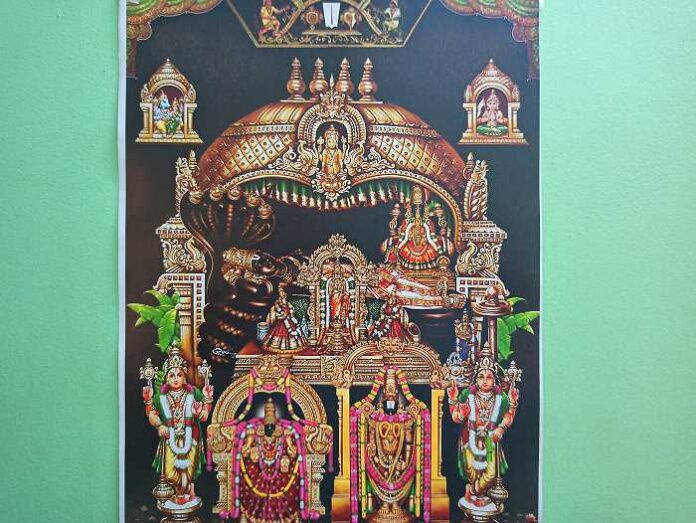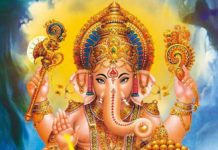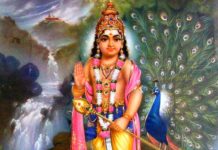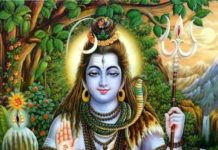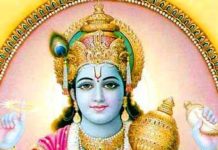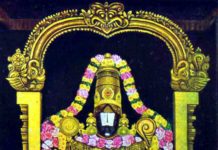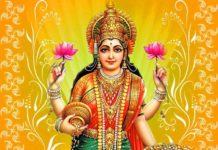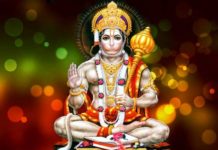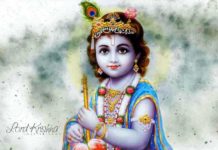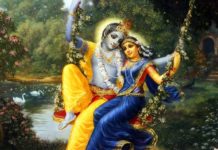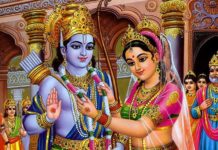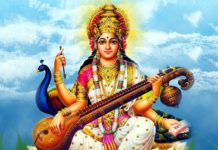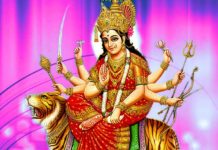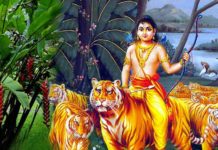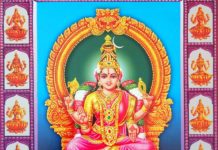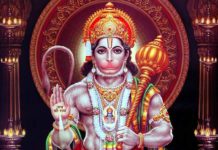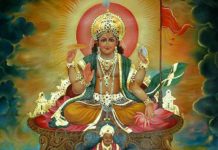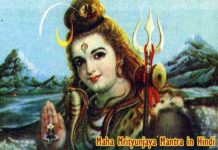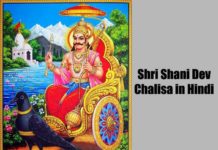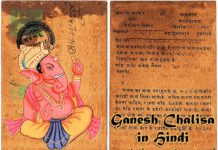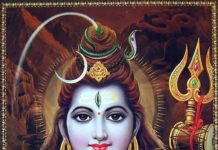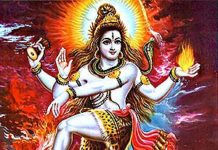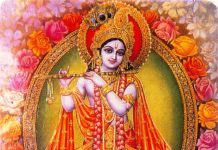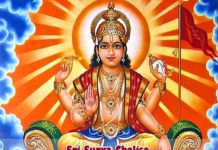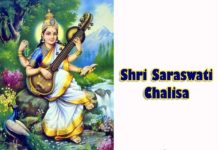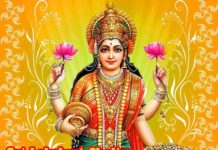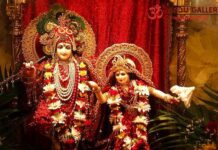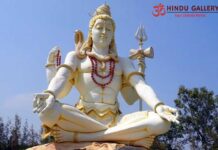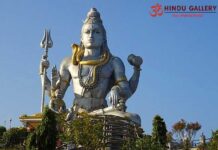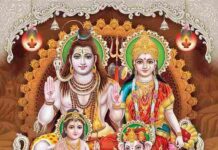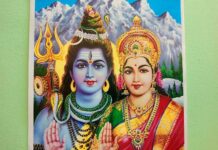Ekadashi Vrats are observed on the eleventh day from either the full moon day (Pournami) or the new moon day (Amavasya). The Vrats are ascribed to Bhagwan Sri Maha Vishnu. Ekadashi days are also known as ‘’Hari Vasara” and “Hari dhin”.
The eleventh day from Pournami is called Krishna Paksha Ekadashi. Shukla Paksha Ekadashi is the eleventh day from Amavasya.
In effect, there are 24 Ekadashis in a year. Each of the Ekadashi Vrats has a significant name. Some of the Ekadashi Vrats are observed with significant Dwadashi Vrats on the next day.
Ekadashi Vrats – Significance
Sri Bramha Puran contains the reference with respect to the importance of the Ekadashi Vrats.
Food wastage
As per the legend, a Sanyasi was living in a humble abode. He used to get food through bhiksha (alms). One day, he found mud in the foods. He was angry. Disgusted, he threw away the food. For wasting food, he got cursed to be born as Chandala in his next birth.
Next birth
In his next birth, he was born as Chandala in Avanti. Even though born as Chandala, he was a devout Vishnu-Bhakt. He was regularly observing Ekadashi Vrats. During Ekadashi day, he used to observe fasting for the whole day.
At night, he used to visit the Sri Vishnu temple near Kshipra river. For the whole night he used to sing in praise of Sri Vishnu.
Bramha Rakshas
On one of the Ekadashis, the Chandala was plucking flowers from a tree to take to Vishnu temple. At that time, a Bramha Rakshas, which was staying in the tree, caught him. It told him, “Hey Chandala, I’m hungry. I am going to eat you”.
Promise made by Chandala
The Chandala said “Oh Bramha Rakshas, I’m glad to be your food. But today is Ekadashi. Please allow me to visit Vishnu temple. I will come back tomorrow morning. You can then eat me”.
Bramha Rakshas allowed him. As promised, the Chandala came back to the Rakshas, the next day morning.
Bramha Rakshas past story
Bramha Rakshas was quite surprised and pleased to see the Chandala back. It said-
”Hey Chandala. Originally, I was born a brahmin. My name was Sharma. My father is Soma Sharma. As per the custom, one can participate in Yagna / homa only if one has Yagnopavita (Janeau / Poonal / Danjyam) through proper ceremony. However, even before having Janeau, I used to participate in Yagnas through mis-representation. This has landed me in the curse to become a Bramha Rakshas.
If you can donate a portion of your Ekadashi Vrat Punya (benefits) to me, I will become normal again”.
Chandala’s donation
Chandala immediately donated two hours’ worth of his Ekadashi Vrats to the Bramha Rakshas. It became normal brahmin again. He thanked the Chandala.
The Chandala then went about Tirtha Yatra. He also realized about his previous birth as the Sanyasi.
Ekadashi Vrats – Names
The following are the names of the Ekadashi Vrats observed in the year. They are provided in chronological order as per the Amantha and Purnimantha Calendars.
1.Kamada Ekadashi
It occurs on the Shukla Paksha Ekadashi Tithi of the Chaitra month as per both the Amantha and Purnimantha Calendars.
The possible benefit of observing this Vrat is the fulfillment of the desires. The next day is observed as Vamana Dwadashi.
2.Varuthini Ekadashi
It occurs on the Krishna Paksha Ekadashi Tithi of the Chaitra month as per Amantha and the Vaisakha month as per Purnimantha Calendars. It is also called as Vaishnava Varuthini Ekadashi, Baurthini Ekadashi and Vaishaka Krishna Ekadashi.
The possible benefits of observing this Vrat is the alleviation of sins and bestowing of happiness.
3.Mohini Ekadashi
It occurs on the Shukla Paksha Ekadashi Tithi of the Vaisakha month as per both the Amantha and Purnimantha Calendars. It is also called as Gauna Mohini Ekadashi and Vaishnava Mohini Ekadashi.
The possible benefit of observing this Vrat is the relief from all troubles and sufferings. The next day is observed as Parashurama Dwadashi.
4.Apara Ekadashi
It occurs on the Krishna Paksha Ekadashi Tithi of the Vaisakha month as per Amantha and the Jyeshta month as per Purnimantha Calendars. In the Northern States of Punjab, Hariyana and Jammu & Kashmir, it is considered auspicious to worship Sri Bhadrakali on this day. Hence the Vrat is called as Bhadrakali Ekadashi. In Orissa this Vrat is called as Jalakreeda Ekadashi as reverence to Bhagwan Jagannath. The Vrat is also called as Achla Ekadashi and Vishaka Vadi Ekadashi.
The possible benefits of observing this Vrat are the alleviation of sins and bestowing of happiness.
5.Nirjala Ekadashi
It occurs on the Shukla Paksha Ekadashi Tithi of the Jyeshta month as per both the Amantha and Purnimantha Calendars. It is also called as Pandava Bhima Ekadashi, Pandava Nirjala Ekadashi and Bheema Seni Ekadashi.
The possible benefits of observing this Vrat are the gaining of control over senses and relief from sufferings and worries. The next day is observed as Rama Lakshmana Dwadashi.
6.Yogini Ekadashi
It occurs on the Krishna Paksha Ekadashi Tithi of the Jyeshta month as per Amantha and the Ashada month as per Purnimantha Calendars. It is also called as Khalilgai Ekadashi.
The possible benefits of observing this Vrat are the blessings of goodness and piety. It equals to the virtuous benefits of offering food to poor brahmins.
7.Devshayani Ekadashi
It occurs on the Shukla Paksha Ekadashi Tithi of the Ashada month as per both the Amantha and Purnimantha Calendars. It is also called as Harishayan Ekadashi and Padma Ekadashi.
The possible benefit of observing this Vrat is attainment of moksha. The next day is observed as Vasudeva Dwadashi.
8.Vaishnava Kamika Ekadashi
It occurs on the Krishna Paksha Ekadashi Tithi of the Ashada month as per Amantha and the Shravana month as per Purnimantha Calendars.
The possible benefit of observing this Vrat is the alleviation of sins of the previous heinous activities.
Apart from the above, there are two more Ekadashi Vrats which occur on the additional (adhik or Purushotham) month as per Hindu Calendar.
9.Padmini Ekadashi
It occurs on the Shukla Paksha Ekadashi Tithi of Ashada Ashika month. It is also called as Kamala Ekadashi. The possible benefits of observing this Vrat are being blessed with enjoyable life and ultimate liberation.
10.Parama Ekadashi
It occurs on the Krishna Paksha Ekadashi Tithi of Ashada Ashika month. It is also called as Purushotham Kamala Ekadashi. The possible benefit of observing this Vrat is alleviation of sins.
11.Shravana Puthradha Ekadashi
It occurs on the Shukla Paksha Ekadashi Tithi of the Shravana month as per both the Amantha and Purnimantha Calendars.
The possible benefit of observing this Vrat is getting progeny. The next day is observed as Dhamodhara Dwadashi.
12.Aja Ekadashi
It occurs on the Krishna Paksha Ekadashi Tithi of the Shravana month as per Amantha and the Bhadhrapadha month as per Purnimantha Calendars. It is also called as Kaliyadalan Ekadashi.
The possible benefits of observing this Vrat are alleviation of all sins and development of the consciousness.
13.Parsva Ekadashi
It occurs on the Shukla Paksha Ekadashi Tithi of the Bhadhrapadha month as per both the Amantha and Purnimantha Calendars. It is also called as Parivarthini Ekadashi, Parsva Paribartan Ekadashi and Vamana Ekadashi.
The possible benefit of observing this Vrat is the purification of mind, body and soul. The next day is observed as Kalki Dwadashi.
14.Indira Ekadashi
It occurs on the Krishna Paksha Ekadashi Tithi of the Bhadhrapadha month as per Amantha and the Ashwin month as per Purnimantha Calendars.
The possible benefit of observing this Vrat is the liberation of the souls of the forefathers.
15.Papankusha Ekadashi
It occurs on the Shukla Paksha Ekadashi Tithi of the Ashwin month as per both the Amantha and Purnimantha Calendars.
The possible benefit of observing this Vrat is the attainment and fulfillment of the desires. The next day is observed as Padmanabha Dwadashi.
16.Rama Ekadashi
It occurs on the Krishna Paksha Ekadashi Tithi of the Ashwin month as per Amantha and the Karthika month as per Purnimantha Calendars.
The possible benefit of observing this Vrat is the elevation of mind and soul to the higher level. The next day is observed as Govathsa Dwadashi.
17.Devuththana Ekadashi
It occurs on the Shukla Paksha Ekadashi Tithi of the Karthika month as per both the Amantha and Purnimantha Calendars. It is also called as Deva Uthpanna Ekadashi and Vaishnava Devuththana Ekadashi.
The possible benefit of observing this Vrat is the purification of mind, body and soul. The next day is observed as Yogeshwara Dwadashi.
18.Uthpanna Ekadashi
It occurs on the Krishna Paksha Ekadashi Tithi of the Karthika month as per Amantha and the Margazira month as per Purnimantha Calendars.
The possible benefit of observing this Vrat is the blessings of virtuous benefits more than ten times of the virtue of donating thousand cows to a brahmin.
19.Mokshadha Ekadashi
It occurs on the Shukla Paksha Ekadashi Tithi of the Margazira month as per both the Amantha and Purnimantha Calendars. It is also called as Sri Mukkoti Ekadashi, Sri Vaikunta Ekadashi, Sri Gurvayur Ekadashi and Sri Gomathi Ekadashi. This day is also the date of origination of Srimad Bhagavad Gita and Sri Vishnu Sahasra Namam.
The possible benefit of observing this Vrat is the attainment of moksha and reaching the abode of Sri Maha Vishnu. The next day is observed as Sri Mathsya Dwadashi.
20.Saphala Ekadashi
It occurs on the Krishna Paksha Ekadashi Tithi of the Margazira month as per Amantha and the Paush month as per Purnimantha Calendars.
The possible benefit of observing this Vrat is attainment of success in all the endeavours.
21.Pausha Puthratha Ekadashi
It occurs on the Shukla Paksha Ekadashi Tithi of the Paush month as per both the Amantha and Purnimantha Calendars.
The possible benefit of observing this Vrat is the blessing of progeny. The next day is observed as Kurma Dwadashi.
22.Shattila Ekadashi
It occurs on the Krishna Paksha Ekadashi Tithi of the Paush month as per Amantha and the Magha month as per Purnimantha Calendars. It is also called as Magh Krishna Ekadashi, Tilda Ekadashi, Vaishnava Shattila Ekadashi and Paapa harini Ekadashi.
The possible benefits of observing this Vrat are alleviation of sins and moksha.
23.Jaya Ekadashi
It occurs on the Shukla Paksha Ekadashi Tithi of the Magha month as per both the Amantha and Purnimantha Calendars. It is also called as Bhishma Ekadashi, Bhoumi Ekadashi and Bhouma Ekadashi.
The possible benefit of observing this Vrat is the blessings of virtuous benefits more than ten times of the virtue of donating thousand cows to a brahmin. The next day is observed as Bhishma Dwadashi.
24.Vijaya Ekadashi
It occurs on the Krishna Paksha Ekadashi Tithi of the Magha month as per Amantha and the Phalguna month as per Purnimantha Calendars. It is also called as Pankodhar Ekadashi and Phalguna Krishna Ekadashi.
The possible benefit of observing this Vrat is the attainment of success in all endeavours.
25.Amalaki Ekadashi
It occurs on the Shukla Paksha Ekadashi Tithi of the Phalguna month as per both the Amantha and Purnimantha Calendars. It is also called as Amalaka Ekadashi, Papa Nashini Ekadashi and Sarba Sammat Ekadashi.
The possible benefit of observing this Vrat is the blessings of virtuous benefits more than ten times of the virtue of donating thousand cows to a brahmin. The next day is observed as Narasimha Dwadashi.
26.Papamochani Ekadashi
It occurs on the Krishna Paksha Ekadashi Tithi of the Phalguna month as per Amantha and the Chaithra month as per Purnimantha Calendars. It is also called as Vaishnava Papamochani Ekadashi and Guruvar Ekadashi (if it occurs on Thursday).
The possible benefit of observing this Vrat is the alleviation of sins.
Ekadashi Vrat – Fasting
The devotees of Bhagwan Maha Vishnu observe strict fasting from the dawn of Ekadashi. There are three types of fasting. One is Nirjala where not even water is consumed. The other one is Sajala where water and liquid juices only are consumed. The last one is Pharalai where milk and fruits only are consumed. The fast shall continue till the sunrise of the next day, i.e., Dwadashi.
Those devotees who cannot do fasting due to medical or other reasons can take sattvic food. Mostly prasadams and fruits are partaken.
On Dwadashi day, unless it happens to be another Vrat day, a nutritious meal is partaken to balance the internal physical effects of fasting on the previous day.
Some devotees do not sleep on the night of Ekadashi. At this time, tales of Sri Maha Vishnu are recited by the elders. Others listen to the stories. Even bhajans / keerthanas are conducted.
Ekadashi Vrats – General rituals
The general rituals followed for Ekadashi Vrats are given below:
-The exact time of dawn of Ekadashi tithi is ascertained either from family elders / astrologers. It is mentioned in the Holy Almanac (Panchang) as well. Even daily Calendars provide the information.
-The idol or picture of Sri Vishnu is decorated with flowers. Incense sticks are burned. Diyas are lit. Pujas are done with tulsi leaves. Slokas or stotras of Sri Maha Vishnu including Sri Vishnu Sahasra Nama are recited with devotion. Srimad Bhagavad Gitaa is also recited.
-The Vrat Katha is to be read and recited.
-At the end of the puja, aarti is done. Prasad is distributed to the family members.
-Making daan / donation to the needy on Ekadashi day is believed to please Sri Maha Vishnu.
Ekadashi Vrats – Benefits
The observation of Ekadashi Vrats helps in detoxifying the body, mind and soul. It bestows peace of mind both internally and externally.
Vishnu Slokas
There are innumerable Slokas on Bhagwan Vishnu. They are composed on Sri Vishnu and each of His manifestations. Some of them are listed below.
Sri Vishnu Sahasra Namam
Roga Nivarana Stotram
Sri Narayana Stotram
Sri Vishnu Ashtakam
Sri Venkateshvara Panchakam
Sri Murari Pancharathnam
Sri Kurma Stotram
Sri Varaha Sthuthi
Sri Varaha Stotram
Sri Narasimha Ashtakam
Sri Narasimha Pancharathnam
Sri Runa Vimochana Slokam
Sri Narasimha Karavalambam
Sri Narasimha Prapatti
Sri Vamana Stotram
Sri Rama Apadhu Dharaka Stotram
Sri Raghava Ashtakam
Sri Rama Raksha Stotram
Sri Seetha Rama Stotram
Sri Krishna Chalisa
Sri Achytha Ashtakam
Sri Govardhana Ashtakam
Sri Guruvayurappan Pancharathnam
Sri Jagannatha Ashtakam
Sri Jagannatha Panchakam
Sri Madhurashtakam
Sri Pandu Ranga Ashtakam
Sri Ranganatha Ashtakam
Sri Venu Gopala Ashtakam
Sri Krishna Dwdasha Nama Stotram
Sri Nanda Nandana Ashtakam
Sri Gokula Ashtakam
Sri Chathusloki Stotram
Sri Anantha Padmanabha Mangala Stotram
Sri Hari Ashtakam
Apart from the above, there are several hymns and slokams invariably in all the Indian languages.
The web-site also has articles on various Sri Vishnu temples across India.


